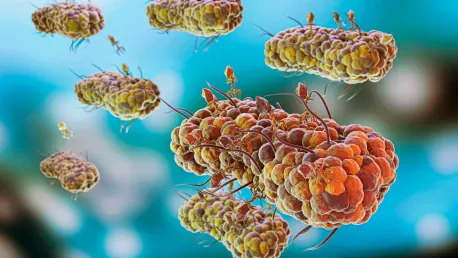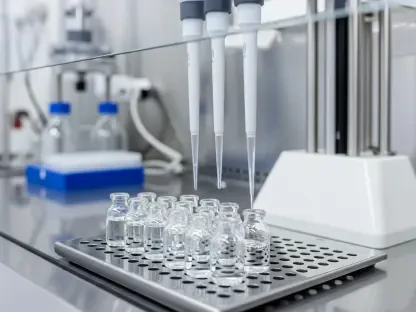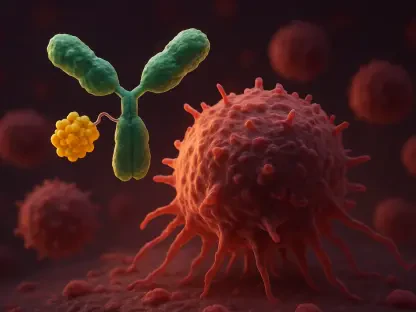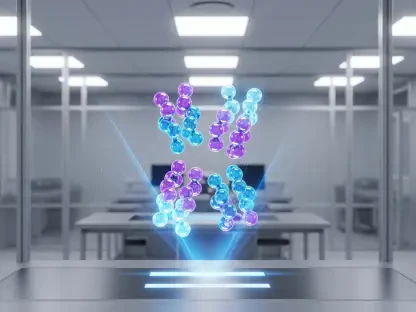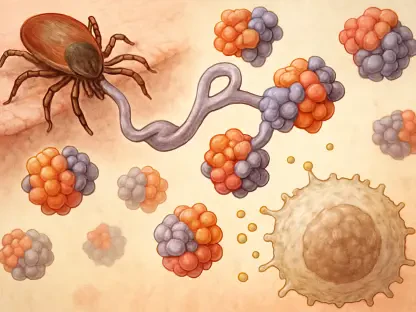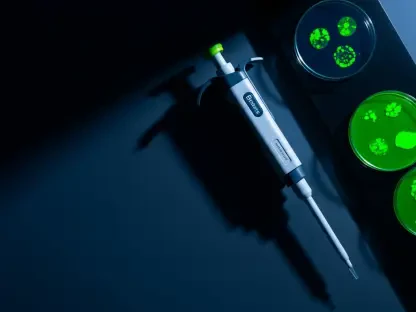In a groundbreaking study conducted by researchers at UF Health Cancer Center and their international partners, scientists have found compelling evidence that a toxin produced by a common foodborne bacterium, Campylobacter jejuni (C. jejuni), significantly accelerates the spread of colorectal tumors to other parts of the body. This discovery sheds new light on the intricate relationship between gut microbiota and cancer, revealing a pressing need for improved detection and treatment methods in combating colorectal cancer metastasis.
Identifying Cytolethal Distending Toxin’s Role
The Connection Between C. jejuni and Colorectal Cancer
The study primarily centers on the identification of a toxin known as cytolethal distending toxin (CDT), which is produced by C. jejuni. Researchers have discovered that CDT is a significant factor in promoting the metastasis of colorectal cancer. This link was confirmed by examining tissue samples from 71 patients and analyzing large national datasets of tumor samples. Patients with detectable levels of C. jejuni were found to be more prone to developing metastasis compared to those without the bacteria.
The presence of C. jejuni in patients with metastatic colorectal cancer points to a poorer prognosis for these patients. By utilizing various scientific methods, such as experiments on laboratory mice with metastatic lung and liver tumors, analysis of human colorectal cancer tissue, and 3D tumor models derived from patient cells, researchers demonstrated how CDT contributes to cancer spread. It was observed that CDT accelerates the expression of several enzyme types and triggers specific signaling pathways in cancer cells that are implicated in metastasis.
Mechanisms of Action and Study Methods
Further delving into the mechanisms of this toxin, the researchers revealed that CDT increases the activity of certain enzymes and activates signaling pathways that facilitate metastasis in colorectal cancer cells. For instance, CDT was found to enhance the expression of matrix metalloproteinases, which play a crucial role in the breakdown of the extracellular matrix, thereby aiding cancer cells in invading other tissues.
To substantiate their findings, the researchers employed a comprehensive array of methods. Laboratory mice harboring metastatic lung and liver tumors were used to observe the effects of CDT. Additionally, studies on human colorectal cancer tissue as well as 3D tumor models created from patient cells provided more insights into CDT’s role. These experiments underscored that targeting CDT and its associated signaling pathways could be a potential strategy for controlling cancer metastasis and improving patient outcomes.
The Importance of Early Detection and New Therapies
Implications for Screening and Treatment
One of the major implications of this study is the need for enhanced screening tools to detect metastatic colorectal cancer at earlier stages and to identify patients who might benefit from more aggressive treatments. Detecting the presence of C. jejuni in patients could serve as a marker for increased risk of metastasis, potentially guiding doctors in tailoring more effective treatment plans for affected individuals.
Developing new therapies that interfere with the cell-signaling pathways activated by CDT is another key area of focus. Researchers are exploring novel therapeutic approaches that can potentially hinder the metastatic process induced by CDT, thereby providing hope for improved outcomes in colorectal cancer patients. This study marks a significant step forward in understanding the role bacterial toxins play in cancer spread, paving the way for innovative diagnostic and therapeutic strategies.
Future Research and Clinical Applications
Going forward, future research aims to unravel the specific mechanisms through which C. jejuni migrates to tumor sites and how CDT activates various signaling pathways in cancer cells. Understanding these pathways in greater detail may allow scientists to develop targeted treatments that can disrupt the processes facilitating cancer metastasis. Additionally, scientists are striving to determine how tumors create environments that support bacterial growth, which could further aid in crafting treatments to mitigate this interaction.
The contributions from researchers Christian Jobin, Ph.D., and Raad Gharaibeh, Ph.D., have been instrumental in advancing this field. Their work emphasizes the critical role of bacterial toxins in cancer metastasis and highlights the potential benefits of including bacterial screening in routine diagnostics for colorectal cancer patients. By identifying and targeting the pathways linked to CDT, there could be notable advancements in both cancer treatment and patient survival rates.
Conclusion
Translating Research into Clinical Advancements
In a groundbreaking study by UF Health Cancer Center researchers and their international collaborators, scientists have uncovered compelling evidence that a toxin from Campylobacter jejuni (C. jejuni), a common foodborne bacterium, significantly hastens the spread of colorectal tumors to other body parts. This important discovery brings new insights into the complex interactions between gut microbiota and cancer, highlighting a critical need for better detection and treatment strategies to combat colorectal cancer metastasis effectively. The study’s findings suggest that the presence of C. jejuni may play a significant role in the progression of colorectal cancer, urging the medical community to consider this factor when developing diagnostic tools and therapies. As colorectal cancer remains one of the leading causes of cancer-related deaths, understanding the mechanisms behind its metastasis is crucial. This research not only bridges gaps in our knowledge but also opens the door for future studies to explore potential interventions targeting gut bacteria to mitigate cancer spread.
